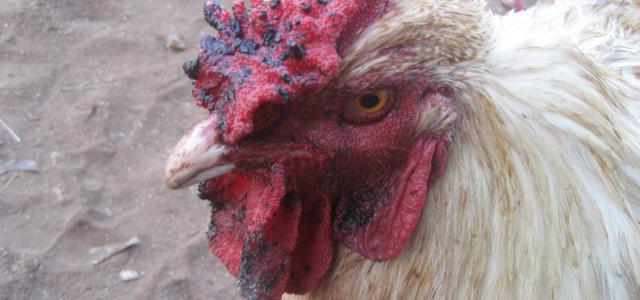Poultry diseases can decimate your kienyeji chicken stock and wipe out your entire investment. Many Kenyans scrap the last of their savings to set up poultry farming operations so the impact of poultry diseases can be a big liability to your investments.

Poultry diseases can be prevented earlier on before they enter your farm by incorporating the right biosecurity measures that prevent entry of diseases into your kienyeji chicken farm. Here is an overview of some of the key measures you can take in order to stop diseases from decimating your poultry flock:-
- Visitors to the poultry farm generally increase the risk of poultry diseases. Try to minimize farm visits as much as possible. If you have a visitor to the farm, incorporate proper hygiene measures. For example, they should wash their hands and disinfect their shoes before entering the poultry farm. Minimize contact between the visitors and the flock.
- Enter the poultry farm only when absolutely necessary such as when feeding, administering medication or monitoring the flock. Frequent traffic and contact with the poultry without proper sanitation measures can increase the risk of disease.
- If someone is coming to visit your poultry farm, make sure they have not visited any other poultry farm for the last few days as there is risk of transferring disease causing pathogens into your poultry farm.
- Anybody entering your poultry farm must thoroughly washed their hands and disinfect their boots or shoes.
- All materials that you are bringing into the poultry farm must be clean and well sanitized. Proper hygiene is generally the first line of defense against harmful poultry diseases.
- If you are bringing any poultry equipment into the farm, make sure that they are washed thoroughly and decontaminated.
- If you are running a medium scale to large scale poultry farming enterprise, it is important to have a clean set of overalls, gloves and farm boots that visitors can put on when visiting your poultry farm.
- Give your staff regular training or educational programs on the proper biosecurity measures that will help prevent poultry diseases. This should be a best practice step for your farm that you can incorporate even when you are not currently grappling with poultry diseases. Make it a culture in your farm to observe the best biosecurity measures.
- Do your farm workers have small backyard farming operations in their homes? That could pose a risk to your own chickens as they might not be observing similar standards of hygiene and sanitation.
- Discourage your employees from bringing fresh poultry meat into the farm. The risk of disease transfer could be higher if there is contact with contaminated poultry meat and the employees do not take adequate steps to clean themselves up.
- Avoid visiting neighboring poultry farms. If you must, make sure you incorporate the thorough sanitation measures described above.
- Source your farm inputs from the most reliable sources. Sourcing from a local low quality supplier can increase the risk of diseases from possible contamination.
- When planning farm visits, start with younger flock before proceeding to the older flock of chickens. In case the younger flock are having a disease problem, then visit them last before you visit the healthier flock of chickens. Ensure you do a complete decontamination when visiting between farms.
- Hire professional animal health experts to solve your poultry issues. Don’t consult someone who is not a qualified vet.
Looking for more kienyeji chicken farming tips, check out our kienyeji chicken manual for a comprehensive overview on how to raise healthy and happy kienyeji chickens.